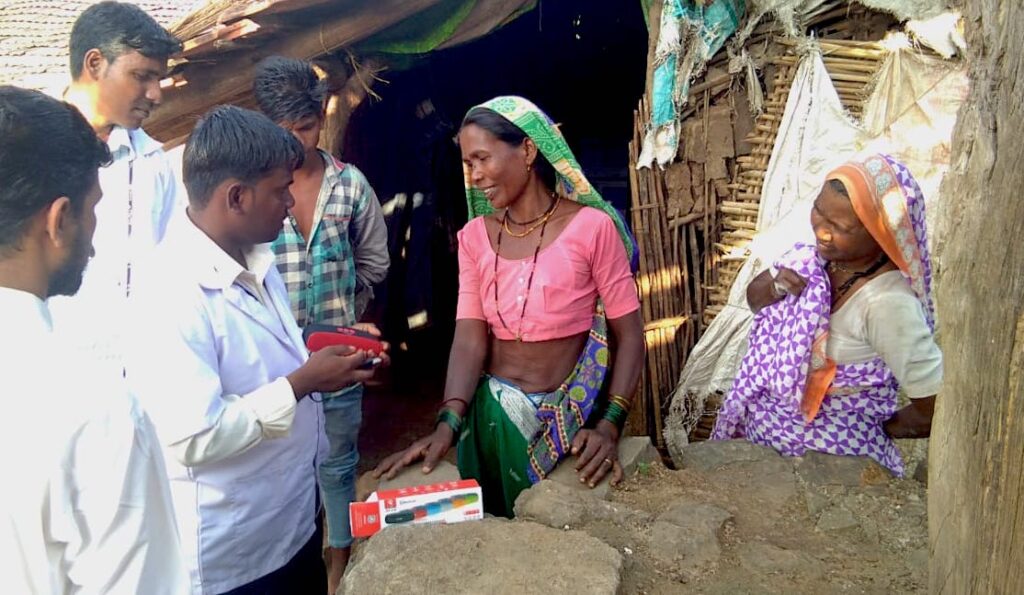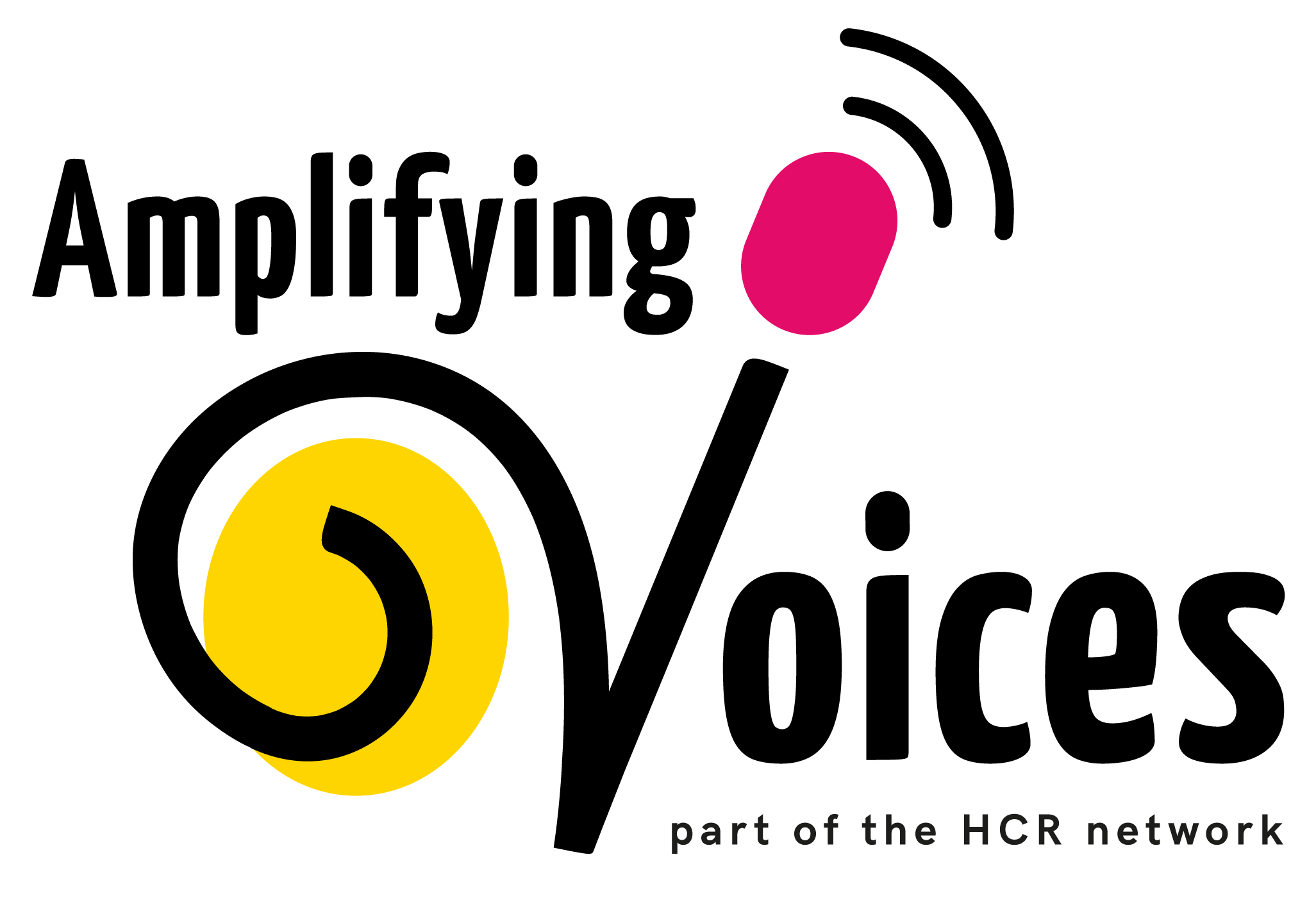
Village Gets a New Voice
Image: Seva team Members distribute speaker boxes to remote Adivasi villagers in Maharastra, India
(Photo used with permission)
It’s hard to find many places on the planet today that don’t have access to some form of media. However in remote parts of India’s Maharashtra state, many indigenous tribal or Adivasi communities don’t have access to radio, television or even mobile ‘phones. Many can’t read.
It’s for that reason that Amplifying Voices, in partnership with Seva Social Welfare Foundation, has begun a project to distribute “speaker boxes” with content that will transform lives. With local-dialect dramas, music and audio programmes that educate, inform and entertain, the ‘Adivasi Voices Project’ is an innovative way to help communities that are very poor and isolated from mainstream Indian society. Many are deprived of the basic facilities of life such as clean water, food, sanitation and healthcare.
“This project will help lift our community as we have suffered for too long from the effects of ignorance and poor education,” said the head of the village, Mr Ramdas Warde. Another community member who didn’t want to be named, spoke of how they felt forgotten by the government, who had promised a lot during election-time, but the promises had never materialised.
A major research project conducted in partnership between Seva and Amplifying Voices in July 2018, revealed that the low level of health and well-being was due largely to poor water, sanitation and hygiene as well as harmful superstitious practices. One lady showed scars on her stomach from where she had been burned by a witchdoctor who said the burning would drive out the evil spirits. One of the medical doctors spoke of how many girls in the region were married off soon after their first periods so that when the first children came along both the mother and child were malnourished.
Seva’s Chief Executive, Ms. Shilpa Shinde, said that changing attitudes and mindsets would take a long time, but that the powerful combination of information and education via the speaker boxes, as well as on the ground interventions such as health camps and sanitation programmes, would begin to change things. She added: “We are committed to seeing the lives and livelihoods of Adivasi communities across the state transformed and we believe this powerful combination of media working with service providers will bring hope to the poorest and most marginalised in our country”.
For more information or to partner with us to reach more tribal communities in India, please contact us
